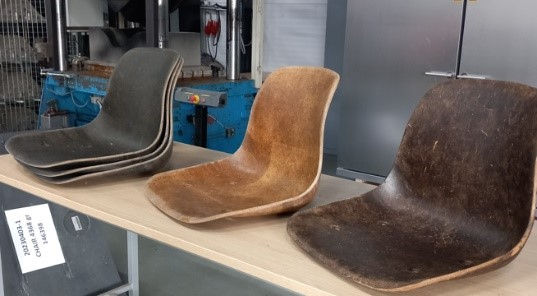CISL: A Human Centric Exemplar Retrofit
- Nov 5, 2021
- 2 min read
We are pleased to announce our involvement in a retrofit project for the Cambridge Institute for Sustainability Leadership (CISL). This new project aims to achieve multiple sustainable building certifications, including BREEAM Outstanding, the Passivhaus ‘EnerPHit’ standard and WELL Gold certification.
The Entopia Building, is to be transformed into a state of the art sustainability hub and will house government and academic leadership and SME’s - fostering collaboration and innovation. The project aims to be an exemplar for the evolution of sustainable building refurbishment in the UK. Our involvement in the Interior Design and Furniture consultancy hopes to break new ground and challenge the industry.
1 Regent Street lies within the Central Conservation Area and occupies a prominent central Cambridge location at the corner of Regent Street and Park Terrace. Both Regent Street and Park Terrace are considered ‘significant’ streets within the Central Conservation Area. Neo-Georgian in style, the building is a former telephone exchange, originally designed by architect George Ford, built in 1939 and adapted and extended over the years.

The construction industry accounts for over 40% of global CO2 emissions. Refurbishment has arguably the greatest role of all to play in creating a more sustainable future. Planned refurbishments for all five floors will be conducted using circular economy principles. All materials and furnishings chosen will be subjected to a stringent vetting process ensuring elements are robust, fit for purpose and made with sustainability at their core; such products include innovative biomaterials, post-consumer and recycled products, sustainably sourced wood, and other ground-breaking technologies.
The manufacture of furniture in the United Kingdom* produced 835,300 metric tons of carbon dioxide emissions in 2019. Emissions have remained steady in recent years, though have decreased considerably since 1990, when the sector produced more than three million metric tons of carbon dioxide. Circular economy in furniture can be implemented through the reuse of existing furniture or in selecting new furniture which satisfies the Cradle-to-Cradle standard- ensuring all parts of a product can be recycling at the end of a product’s life.
This project also hopes to advance user health and wellness; applying a holistic and inclusive approach to human centered design by incorporating biophilic elements, sit-to-stand desks, as well as a choice of innovative furniture to encourage both movement and collaboration.
“The team at Eve Waldron Design brings enthusiasm and creativity to our fast-paced project - a flagship retrofit for Cambridge. Their expertise is helping us embrace new ideas and opportunities for the greatest possible impact in this inspirational space dedicated to sustainability and inclusion.”
Clare Shine, CEO and Director of CISL.


